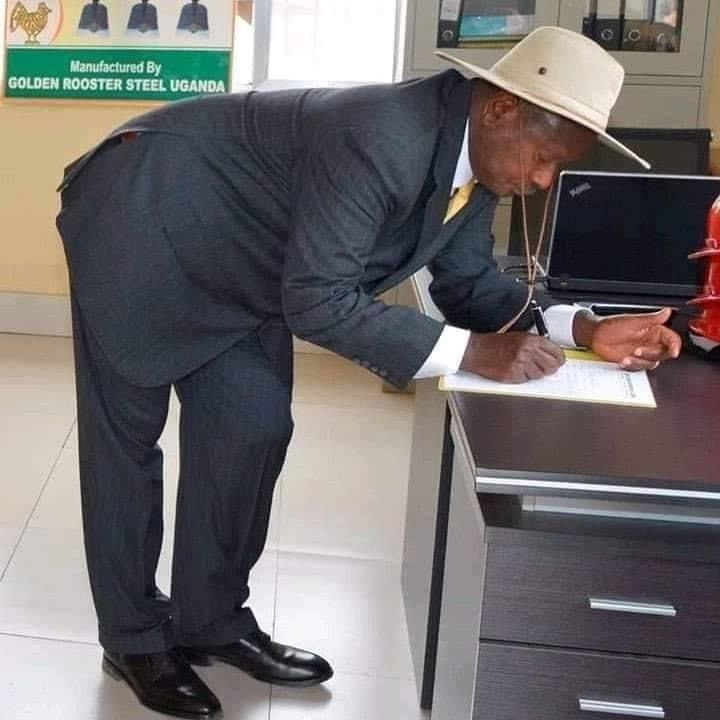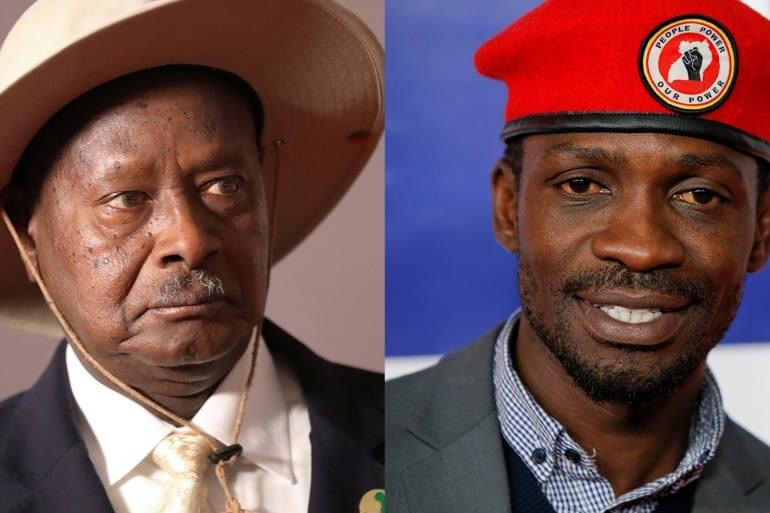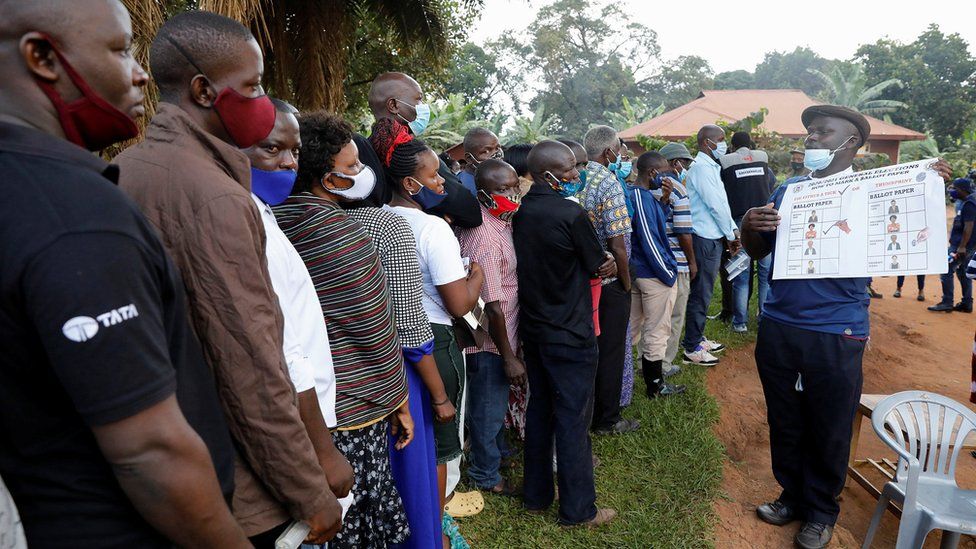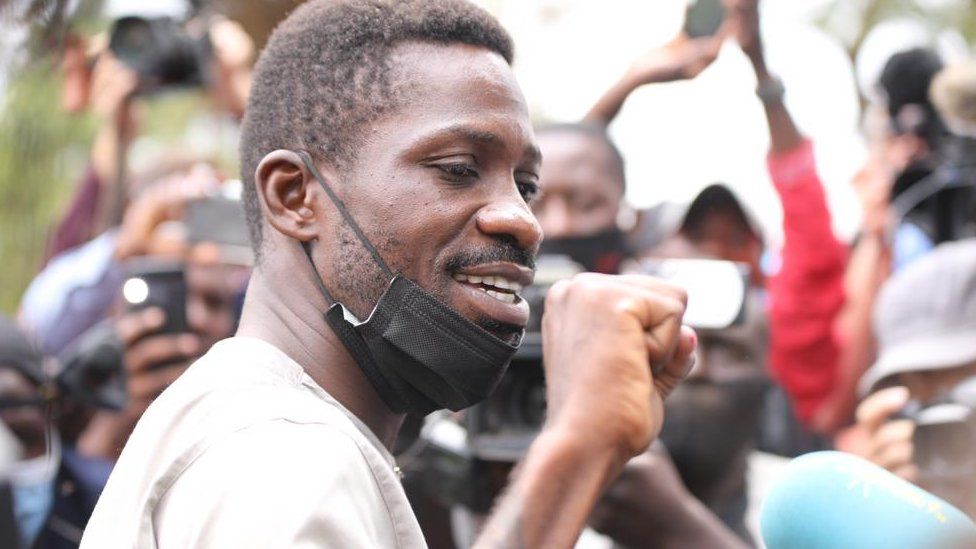
Even as the practice of international diplomacy continues apace, Mr. Yoweri Kaguta Museveni’s return to power as President of Uganda must prompt students of international relations to interrogate their assumptions about Uganda and its place in the world.
It is no longer possible to ascribe epistemic meaning to terms that are commonly associated with the analysis of international relations and foreign policy, the “national interest,” “international community,” or “autonomy,” for that matter.
Any electoral triumph empowers with its political and intellectual narratives about Uganda’s future and disenfranchises others. President Museveni’s victory will energise several constituencies, many of whom do not necessarily converge on their views.
President Museveni’s, now firmly in power and conscious of such an endeavour’s limits, will probably not pander too much to this constituency. His victory will also give a fillip to elites in Uganda’s political and financial capitals who have thus far felt sidelined by a consensus that privileged the state as Uganda’s economy and its primary political actor.
Finally, President Yoweri Museveni’s triumph will also stir his party to decimate or abandon through benign neglect of his political legacy, which will harm the Ugandan politics than the stepping down of the Ugandan youths or active public life.
Diplomacy in international relations is an arse, closing its eyes to stark realities to open it to the ridiculous. Moreover, nowhere is this more pronounced as in elections, selections, and coup d’états.

Two different rebel leaders, for example, can fight for the soul of a coutry. One succeeds in overrunning the country and captures a larger part of the country. The other captures only a lesser part of the country.
The diplomatic world will recognise and deal with the guy of lesser size and population of the former notwithstanding. It is an inexplicable diplomats’ obsession with capitals.
In controversial elections such as we have seen in Uganda under President Yoweri Museveni, diplomats and or nations deal according to that country’s position relative to world happenings. The head of the European Union delegation in Uganda Atillio Pacifici, has already declared that Ugandans held a very peaceful, free, and fair election. He knows better but this will be a diplomatic position.
Other notables who will not condemn President Yoweri Museveni are the UN and all the multilateral organizations, and the world’s big-name nations. In August 2001, Yahya Jammeh expelled British diplomat Bharat Joshi, deputy head of mission at the British High Commission, and was given 72 hours to leave after being declared Persona non Grata. Then U.K. government minister Ben Bradshaw called President Museveni to complain about President Jammeh’s actions in expelling a diplomat. Reason?
Today’s international order is in a stagnation state because it has no creator, preserver, or destroyer. The United States under Donald Trump has made it amply clear it prefers mercantilism over liberal institutionalist frameworks that rely on comparative advantages.
The faltering of the citadel of democracy under siege in the US Capitol Hill on January 6 makes it harder for the United States of America and other Western nations to lecture African leaders about their shortcomings.
Even so, donors should continue to brave charges of hypocrisy to make clear where they stand. The message needs to be nuanced, but President-elect Joe Biden should clarify to African democrats that he is on their side. Even more critical is what Africans do themselves.
President Museveni knows where he holds the world by the balls. Uganda has the most progressive refugee policies in Africa and one of the best on the entire planet. Through this they have earned the respect of the world.

In Uganda, refugees do not stay in camps like in other African countries or even in Europe. They stay in settlements or are integrated into the community where they live as ordinary Ugandans free to work and go anywhere they wish and are even given land by the state. They are viewed as “assets” – economic actors contributing to the state and not “burdens.”
Suppose you are a refugee, the best place to be in Africa, if not the world, is Uganda. So the West handles Uganda (read Museveni) with kid gloves, for there is nothing citizens fears like refugees. If a nation can take them, they can give you all the money to keep them there. So nobody will raise a strong voice against Yoweri Museveni’s sham, violent election. Uganda hosts the third largest number of refugees on earth.
Furthermore, that is how he holds the West hostage. Remember when President Uhuru Kenyatta was facing legitimacy issues in 2013 and the ICC gong hanging on his neck. What did he do? Threaten to close Kakuma refugee camp. All the big Western Powers came to him, begging. So the African Union, the United Nations, European Union will do nothing to President Museveni. Not even raise a voice. Just like you and me, they are praying he dies.
However, living on this planet must have taught you that those you wish death never die. Think of the 27-year-old girl who marries an 83-year old rich ‘Toubab’ in joyful hope that he will die within two years and she inherits the riches and lives happily ever after with her young boyfriend.
Then the ‘Toubab’ refuses to die, clocking 102 years and still blinking, still cracking jokes. He is only asking for a container to spit saliva. And food. More food. How long is that? 27 years. In frustration, the 30-year-old waiting boyfriend risk turning 54 years empty handed if he does not act quickly and marry someone else.
President Yoweri Museveni, a former rebel leader, seized power in 1986 after overthrowing a dictatorship. The problem with African leaders, Mr. Museveni said then, was that they overstayed. Thirty-four years later, he is still there.

Regrettably, this is becoming standard practice in Africa. Though evidence has shown, African citizens overwhelmingly support democratic norms, especially term limits, leaders have become adept at manipulating systems to stay in power.
In Burundi, Guinea, Ivory Coast, Rwanda, and Uganda, incumbents have twisted constitutions to extend their rule. Though coups are now relatively rare in Africa, former soldiers have become adept at using weak systems to gain — and retain — power. Leaders in Angola, Chad, Egypt, Ethiopia, Nigeria, Rwanda, Sudan, South Sudan, and Zimbabwe once wore khaki or camouflage.
Mr. Museveni, a former fighter himself, is at 76, running for yet another term. The elections lack all credibility. The institutions that should protect voters have been captured. His primary challenger, the singer-turned-politician Bobi Wine, has been beaten and shot at. Scores of his supporters have been killed. His access to media has been cut.
Under the guise of Covid-19 restrictions that do not apply to Mr. Yoweri Museveni, Mr. Robert Kyagulanyi, known as Bobi Wine’s rallies, have been broken up. That is the predicament of the world with President Yoweri Museveni. You wait, and he does not seem to go. Still doing press-ups before our very eyes.
For Bobi Wine, one day, the people of Uganda will repay his remarkable courage and sacrifice. Many 38-year-olds like him organize their lives to avoid controversy, conflict, and the chance to face the danger he gave to all. We salute and honor him.
Uganda’s Mr. Bobi Wine is an example of a rising phenomenon in a continent where the median age is below 20, but many leaders are three or four times that age.
An increasingly connected, ambitious, but frustrated, urban youth is becoming a potent political force. With constant civic pressure, the forces demanding accountable government can reverse recent setbacks. It will be a miracle if Mr. Bobi Wine wins an election so blatantly stacked against him.
Nevertheless, the aspirations he represents will not disappear. In both Algeria and Sudan, street movements helped dislodge governments. That will happen more often if states cannot build democratic systems that allow people to select and sack their leaders.
Students, scholars, and observers of international relations in Africa are therefore confronted with the possibility of a fundamental shift in the intellectual and ideological moorings around which Africa and Uganda’s foreign policy has hitherto been conducted.
Members of the African Union and the European Union may have their views, favorable or unfavorable, of this shift; what is essential is that the academy senses and responds with agility to it through sustained and rigorous scholarship.
Uganda is at one such crucial juncture and needs its researchers and students of political science – of all political persuasions to be vigilant and stand-to-to-toe with the government’s brain trusts.
Any electoral triumph empowers with its political and intellectual narratives about Uganda’s future and disenfranchises others. President Museveni’s victory will energize several constituencies, many of whom do not necessarily converge on their views.
By Alagi Yorro Jallow











Recent Comments